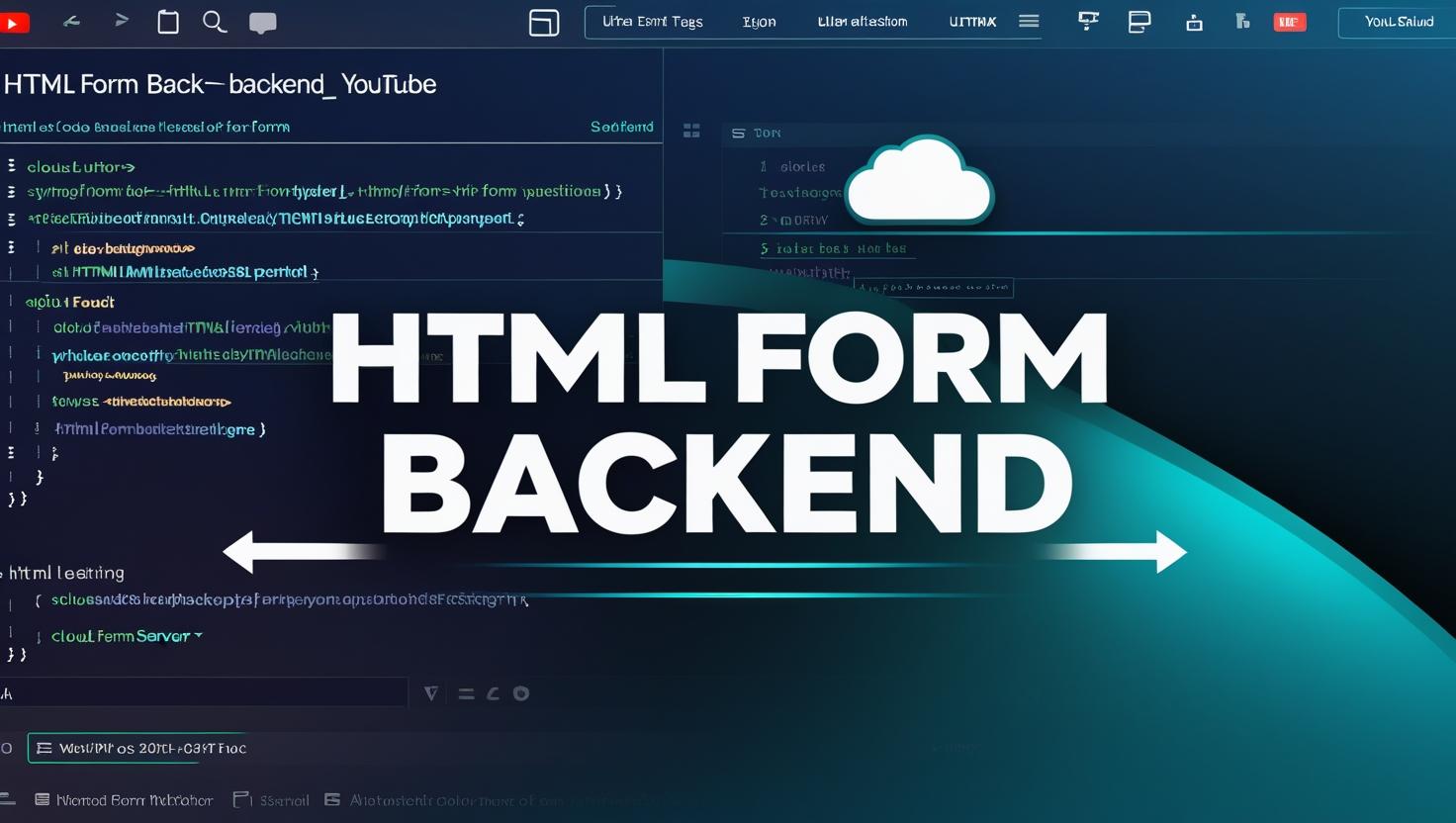
HTML Form Backend – How to Collect Form Submissions Without a Server
Discover how to easily add form submissions to your static site without setting up a server. With tools like Submify, you can get contact forms working in minutes.
What is an HTML Form Backend? A Complete Guide for Developers
When you add a contact form, newsletter signup, or feedback form to your website, you quickly realize something: HTML alone can’t actually send form data anywhere. That’s where an HTML form backend comes in.
An HTML form backend is the service or server-side code that processes form submissions, validates the data, and delivers it to its destination — whether that’s your email inbox, a database, or a third-party service via webhook. Without a backend, your form is just a static box that can’t send or store anything.
In this guide, we’ll explain how HTML form backends work, why you need one, different setup options, and how tools like Submify make it instant — with no backend coding required.
Why You Need an HTML Form Backend
- Receives submissions from your form
- Validates inputs (e.g., ensures the email is valid)
- Prevents spam with filters or CAPTCHAs
- Handles file uploads securely
- Sends the data via email, database storage, or API calls
- Triggers automations like sending confirmation emails or logging entries
Ways to Set Up an HTML Form Backend
1. Build Your Own Backend
You can write server-side code (PHP, Node.js, Python, etc.) to handle form submissions.
- Pros: Complete control, fully customizable.
- Cons: Requires coding skills, hosting, maintenance, and security measures.
2. Use a Form Backend Service
You can use a hosted solution like Submify.
- Pros: No coding, no servers, quick setup, built-in spam protection.
- Cons: Some features depend on the service plan.
How an HTML Form Backend Works
- User fills out the form and clicks “Submit.”
- The browser sends a POST request with the form data to the backend.
- The backend validates and processes the data.
- The backend delivers it to your email, database, or webhook endpoint.
- Optional: auto-replies, redirects, or other automations are triggered.
Example: HTML Form Backend with Submify
With Submify, you can have a working HTML form backend in under a minute.
<form action="https://submify.vercel.app/your-email@domain.com" method="POST"> <input type="text" name="name" placeholder="Your Name" required> <input type="email" name="email" placeholder="Your Email" required> <textarea name="message" placeholder="Your Message" required></textarea> <button type="submit">Send</button> </form>
Why Developers Love Submify:
- No registration required
- Spam filtering & honeypot fields
- File upload support
- Auto-response emails
- Webhook integrations for automation
- Custom redirect after submission
Advanced Features to Look For
- Custom email templates for branded replies
- Webhook integrations to connect with tools like Google Sheets, CRMs, or Slack
- File uploads with secure storage
- Analytics for submission tracking
Conclusion
An HTML form backend is essential for making your website forms functional. Whether you build one from scratch or use a ready-made solution, it’s what transforms a static form into a working contact point.
If you want the fastest, easiest way to set up a secure HTML form backend, try Submify — no servers, no code, no problem.
FAQ
Q: Can I use Submify without coding?
Yes — just add the Submify action URL to your form tag.
Q: Is it secure?
Submify uses HTTPS, input validation, and spam filtering to protect your data.
Q: Can I connect Submify to Google Sheets?
Yes — via webhooks or integration tools like Zapier.